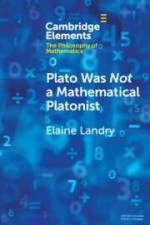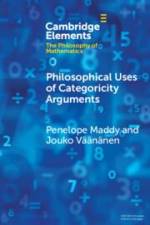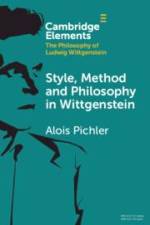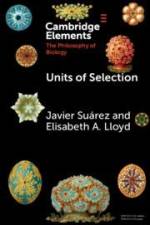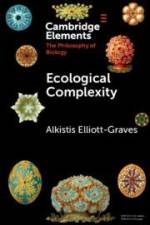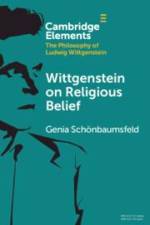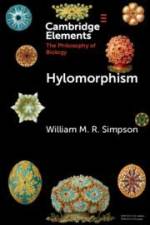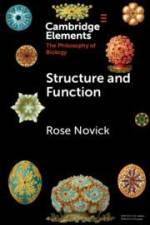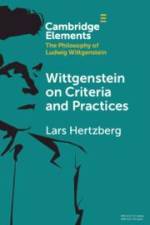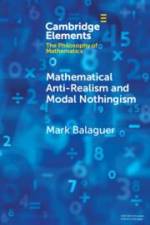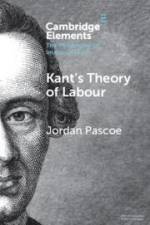Bøger i Elements in the Philosophy of serien
-
208,95 kr. This Element shows that Plato keeps a clear distinction between mathematical and metaphysical realism and the knife he uses to slice the difference is method. The philosopher's dialectical method requires that we tether the truth of hypotheses to existing metaphysical objects. The mathematician's hypothetical method, by contrast, takes hypotheses as if they were first principles, so no metaphysical account of their truth is needed. Thus, we come to Plato's methodological as-if realism: in mathematics, we treat our hypotheses as if they were first principles, and, consequently, our objects as if they existed, and we do this for the purpose of solving problems. Taking the road suggested by Plato's Republic, this Element shows that methodological commitments to mathematical objects are made in light of mathematical practice; foundational considerations; and, mathematical applicability. This title is also available as Open Access on Cambridge Core.
- Bog
- 208,95 kr.
-
198,95 - 647,95 kr. - Bog
- 198,95 kr.
-
205,95 - 647,95 kr. - Bog
- 205,95 kr.
-
205,95 - 647,95 kr. - Bog
- 205,95 kr.
-
205,95 kr. This Element answers four questions. Can any traditional theory of scientific explanation make sense of the place of mathematics in explanation? If traditional monist theories are inadequate, is there some way to develop a more flexible, but still monist, approach that will clarify how mathematics can help to explain? What sort of pluralism about explanation is best equipped to clarify how mathematics can help to explain in science and in mathematics itself? Finally, how can the mathematical elements of an explanation be integrated into the physical world? Some of the evidence for a novel scientific posit may be traced to the explanatory power that this posit would afford, were it to exist. Can a similar kind of explanatory evidence be provided for the existence of mathematical objects, and if not, why not?
- Bog
- 205,95 kr.
-
208,95 - 647,95 kr. - Bog
- 208,95 kr.
-
198,95 kr. Scientists cannot devise theories, construct models, propose explanations, make predictions, or even carry out observations, without first classifying their subject matter. The goal of scientific taxonomy is to come up with classification schemes that conform to nature's own. Another way of putting this is that science aims to devise categories that correspond to 'natural kinds.' The interest in ascertaining the real kinds of things in nature is as old as philosophy itself, but it takes on a different guise when one adopts a naturalist stance in philosophy, that is when one looks closely at scientific practice and takes it as a guide for identifying natural kinds and investigating their general features. This Element surveys existing philosophical accounts of natural kinds, defends a naturalist alternative, and applies it to case studies in a diverse set of sciences. This title is also available as Open Access on Cambridge Core.
- Bog
- 198,95 kr.
-
198,95 kr. Wittgenstein published next to nothing on the philosophy of religion and yet his conception of religious belief has been both enormously influential and hotly contested. In the contemporary literature, Wittgenstein has variously been labelled a fideist, a non-cognitivist and a relativist of sorts. This Element shows that all of these readings are misguided and seriously at odds, not just with what Wittgenstein says about religious belief, but with his entire later philosophy. This Element also argues that Wittgenstein presents us with an important 'third way' of understanding religious belief ¿ one that does not fall into the trap of either assimilating religious beliefs to ordinary empirical or scientific beliefs or seeking to reduce them to the expression of certain attitudes.
- Bog
- 198,95 kr.
-
198,95 - 647,95 kr. - Bog
- 198,95 kr.
-
205,95 kr. - Bog
- 205,95 kr.
-
205,95 kr. This Element offers an opinionated and selective introduction to philosophical issues concerning idealizations in physics, including the concept of and reasons for introducing idealization, abstraction, and approximation, possible taxonomy and justification, and application to issues of mathematical Platonism, scientific realism, and scientific understanding.
- Bog
- 205,95 kr.
-
198,95 - 609,95 kr. - Bog
- 198,95 kr.
-
198,95 kr. This Element argues that aesthetics broadly conceived plays a significant role in Wittgenstein's philosophy. In doing so, it draws on the interpretative tradition that emphasizes affinities between Wittgenstein's thought and Kant's philosophy. Following the chronology of Wittgenstein's philosophical work, this Element addresses Wittgenstein's early equation between ethics and aesthetics, his middle-period discussion on the normative character of aesthetic judgments and the possibility of their justification, and his later comparison between language and music. As a whole, it traces a continuous line of thought pertaining to a non-conceptual form of encounter with reality, which is developed in close conjunction with aesthetics and contributes to Wittgenstein's understanding of language and the method of philosophy throughout his career. This title is also available as open access on Cambridge Core.
- Bog
- 198,95 kr.
-
205,95 kr. In the interpretive literature from the 1950's through the 1970's the term 'criterion' was thought to be a central key to the understanding of Wittgenstein's later philosophy. Later on, it was relegated from this place of honour to being one of a variety of expressions used by Wittgenstein in dealing with philosophical questions. This Element tries to account for the shifting fate of this concept. It discusses the various occurrences of the word ¿criteriä in the Philosophical Investigations, argues that the post-Wittgensteinian debate about criteria was put on the wrong track by a problematic passage in Wittgenstein's early Blue Book, and finally gives an overview of the main contributions to this debate, trying to achieve a reconciliation between the rival conceptions.
- Bog
- 205,95 kr.
-
205,95 kr. This Element defends mathematical anti-realism against an underappreciated problem with that view-a problem having to do with modal truthmaking. Part I develops mathematical anti-realism, it defends that view against a number of well-known objections, and it raises a less widely discussed objection to anti-realism-an objection based on the fact that (a) mathematical anti-realists need to commit to the truth of certain kinds of modal claims, and (b) it's not clear that the truth of these modal claims is compatible with mathematical anti-realism. Part II considers various strategies that anti-realists might pursue in trying to solve this modal-truth problem with their view, it argues that there's only one viable view that anti-realists can endorse in order to solve the modal-truth problem, and it argues that the view in question-which is here called modal nothingism-is true.
- Bog
- 205,95 kr.
-
205,95 kr. This Element provides an entry point for philosophical engagement with quantization and the classical limit. It introduces the mathematical tools of C*-algebras as they are used to compare classical and quantum physics. It then employs those tools to investigate philosophical issues surrounding theory change in physics. It discusses examples in which quantization bears on the topics of reduction, structural continuity, analogical reasoning, and theory construction. In doing so, it demonstrates that the precise mathematical tools of algebraic quantum theory can aid philosophers of science and philosophers of physics.
- Bog
- 205,95 kr.
-
205,95 kr. This Element examines Kant's innovative account of labour in his political philosophy and develops an intersectional analysis of Kant. By demonstrating that Kant's analysis of slavery, citizenship, and sex developed in inter-linked ways over several decades, culminating in his development of a 'trichotomy' of Right, the author shows that Kant's normative account of independence is configured through his theory of labour, and is continuous with his anthropological accounts of race and gender, providing a systemic justification for the dependency of women and non-whites embedded in his philosophy of right. By examining Kant's arguments about slavery as intertwined with his account of domestic labour, the author argues that his ultimate rejection of slavery may owe more to his changing conceptualization of labour than to his theory of race, and that his final arguments against slavery rehearse strategies for embedding intersectional patterns of domestic dependence in his account of the rightful state.
- Bog
- 205,95 kr.
-
205,95 kr. The question of what Wittgenstein meant by 'forms of life' has attracted a great deal of attention in the literature, yet it is an expression that Wittgenstein himself employs on only a relatively small number of occasions, and that he does not explicitly define. This Element gives a description of this concept that also explains Wittgenstein's reluctance to say much about it. A short historical introduction examines the origins and uses of the term in Wittgenstein's time. The Element then presents a survey of Wittgenstein's employment of it, and an overview of the literature. Finally, the Element offers a methodological reading of this notion, interpreting it as a conceptual tool in Wittgenstein's wider inquiries into the workings of our language.
- Bog
- 205,95 kr.

